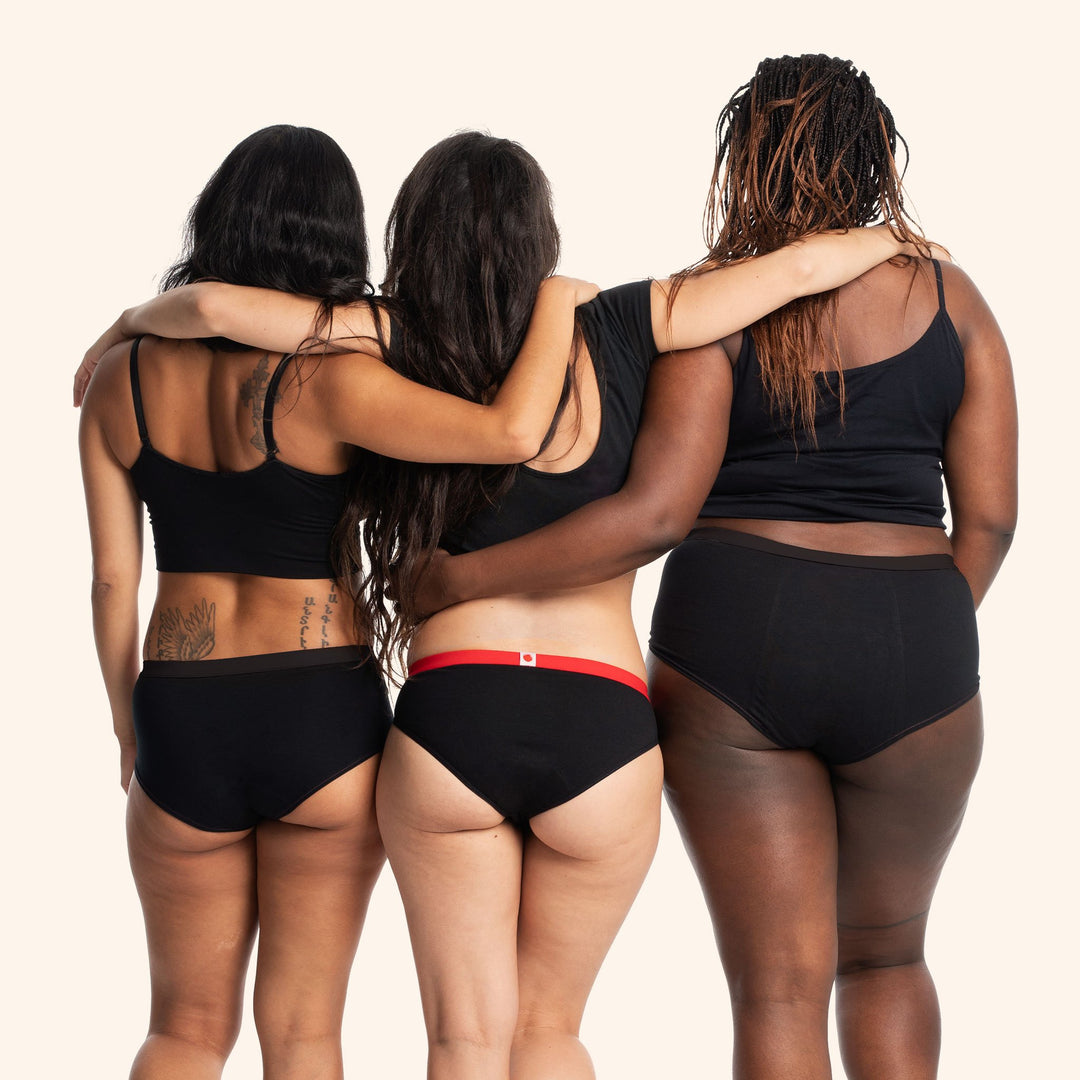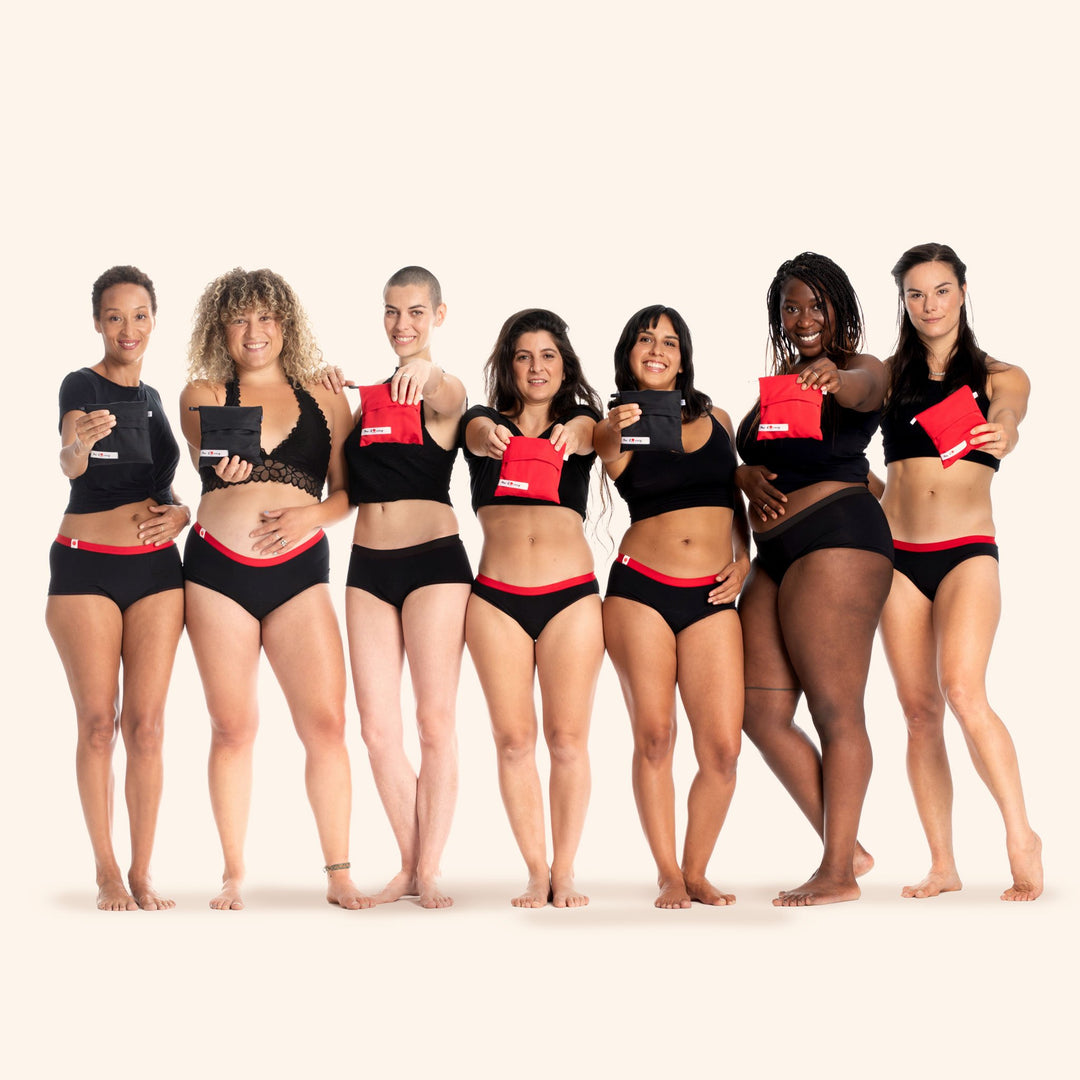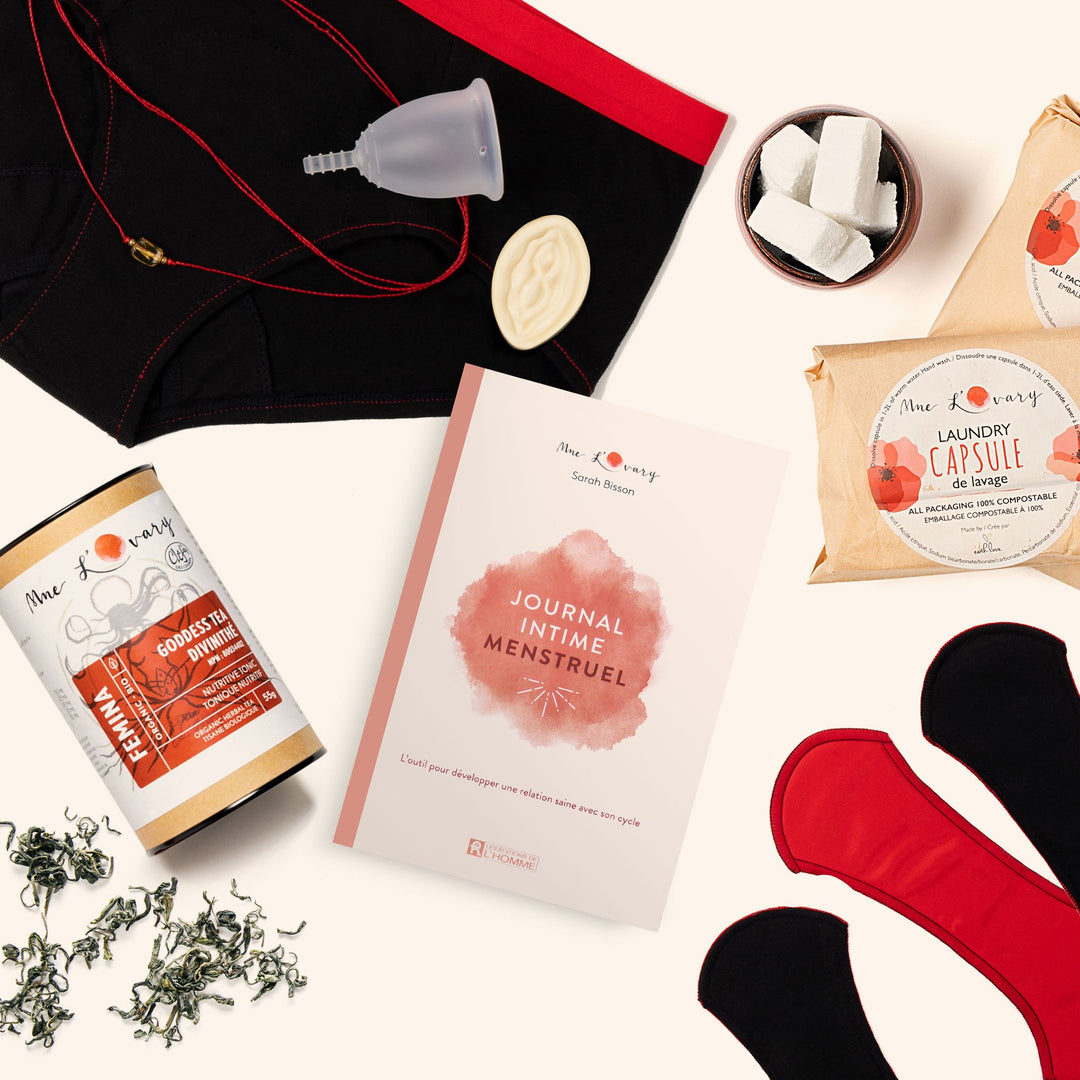Comment bénéficier d'un remboursement
1. Vérifier sur la liste que votre municipalité propose la subvention.
2. Réalisez votre achat de culotte menstruelle Mme L'Ovary.
3. Envoyer les preuves d'achat et les pièces justificatives demandées.


👉 Nous faisons de notre mieux pour maintenir notre liste de villes engagées à jour. Toutefois, nous ne pouvons pas toujours suivre toutes les informations en temps réel. Nous vous recommandons de consulter le site Web de l'agglomération qui vous concerne pour avoir une information à jour.
Get financial help when you buy menstrual underwear
We believe that it’s time sustainable feminine hygiene products become more accessible. As committed female entrepreneurs, we decided to take action and develop concrete solutions to do just that.
First, we wanted to arrive at an estimate of the annual costs associated with both disposable and sustainable feminine hygiene products. That was our reference point. We compared three generic products in the context of an average menstrual cycle, and guess what we calculated? People who menstruate pay an average of $70 for disposable feminine hygiene products.
Considering that washable products have a minimum lifespan of 5 years and that washable underwear and sanitary pads can be cleaned once or twice during the menstrual cycle, the cost of going green ranges from $35 to $430.
On an annual basis, the cost is $39, which is less than the disposable alternatives.
But, the initial cost can be a barrier to the adoption of sustainable feminine sanitary products. Subsidies help increase their accessibility, and several municipalities have started introducing them over the past few years.
In May 2020, armed with your signatures, Team L’Ovary presented a list of recommendations to encourage the City of Montreal to introduce these subsidies.
Since then, a dozen new municipalities have followed suit.















